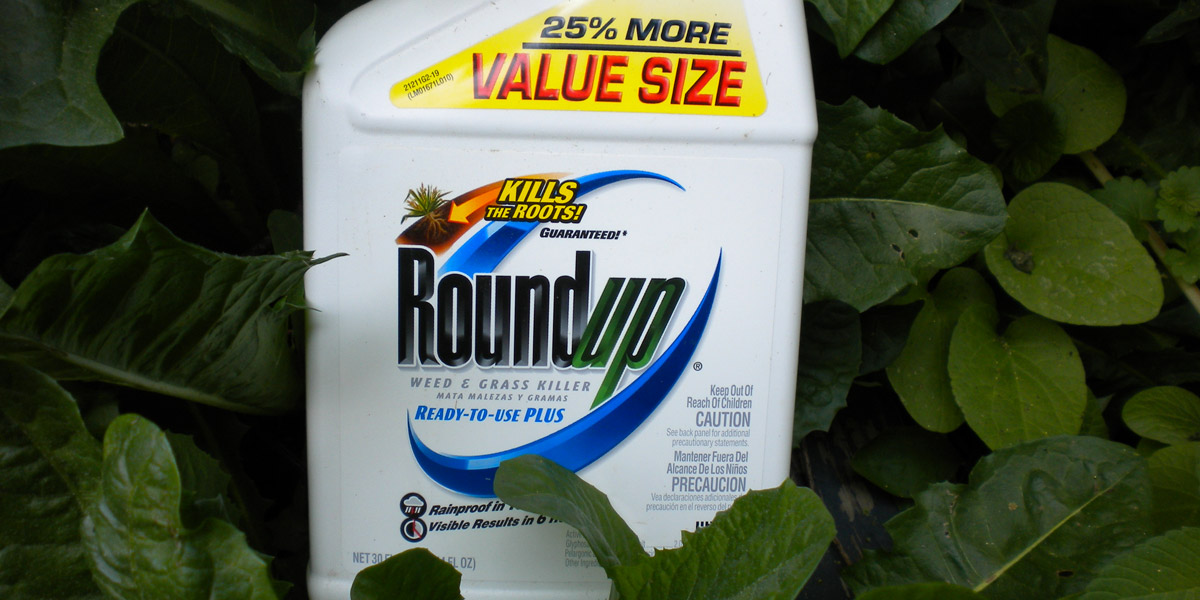 Bulgarian ministry's action is "a good step to reduce the use of this dangerous weedkiller" – campaign group
Bulgarian ministry's action is "a good step to reduce the use of this dangerous weedkiller" – campaign group
The campaign of the AGROLINK Association to ban glyphosate-containing herbicides in Bulgaria, started 7 years ago, has ended successfully. The use of these chemicals is banned in areas used by the general public or by vulnerable groups: public parks and gardens, sports and recreation grounds, school and children's playgrounds, as well as near health and educational facilities.[1] The category of glyphosate-based herbicides (GBH) has been changed from non-professional to professional only, which means that only distributors, consultants and professional users holding a certificate issued by Bulgarian Food Safety Agency (BFSA) can purchase and use these chemicals.
BFSA has issued orders on glyphosate-based herbicides published on the agency's website and all manufacturers and traders are required to change the way they use them. They are:
- Not to be used by non-professional users - all glyphosate based products to be categorised in the professional use category;
- Not to be approved for aerial spraying;
- Not be approved for use as a desiccant or defoliant prior to harvest of agricultural crops;
- Not to be used for the treatment of watercourses;
- Not to be applied to areas used by the general public or vulnerable groups, such as public parks and gardens, sports and recreation grounds, school and children's playgrounds, and in the immediate vicinity of health and education facilities;
- Not to be applied in protected areas designated under the Protected Areas Act; protected areas forming part of the European Natura 2000 ecological network designated under the Biodiversity Act.
Dr Svetla Nikolova, initiator of the campaign, said, "Following the European Commission's decision to extend the use of glyphosate in the EU for another 10 years, the Bulgarian ministry's action is a good step to reduce the use of this dangerous weedkiller, which is catastrophically damaging human health, biodiversity, soil and water."
Most of these bans were included in the demands of the AGROLNIK Association from 2017, the petition from 2020,[2] the open letter supported by civil and branch organisations sent to the responsible institutions in Bulgaria.[3]
AGROLINK said in a press release: "AGROLINK Association and other organisations will continue to work together with scientists and specialists to educate municipalities, small yard owners, landscape architects, citizens and farmers in the implementation of alternative practices to reduce the use of pesticides not only in sensitive areas such as parks, gardens, schools, but also in agricultural areas.
"The Agrolink Association together with scientists and doctors will work for the recognition of Parkinson's as an occupational disease for farmers working with glyphosate and their compensation by the state.[4]
"We support PAN Europe's lawsuit against the European Commission to allow glyphosate, the most widely used herbicide in Europe and the world, widely known by the product Roundup, to continue for another 10 years.[5]
"We hope that the first pesticide-free city in Bulgaria will soon be declared part of the European Pesticide-Free Cities Network."[6]
Notes
[1] https://bfsa.egov.bg/wps/portal/bfsa-web/registers/Herbicidi_8
[2] https://www.peticiq.com/zabrana_na_glyphosate_v_bulgaria
[3] http://agrolink.org/bg/novini/193-otvoreno-pismo-zabrana-glyphosate-v-bulgaria
[4] https://www.euronews.com/health/2023/11/17/france-to-continue-compensating-farmers-with-parkinsons-disease-linked-to-glyphosate-use
[5] https://www.pan-europe.info/eu-legislation/pan-europe-legal-action
[6] https://www.pesticide-free-towns.info/










